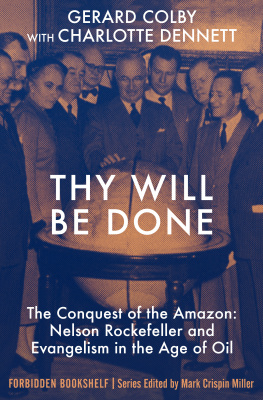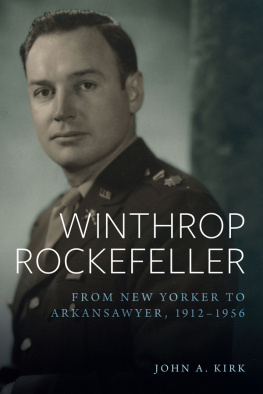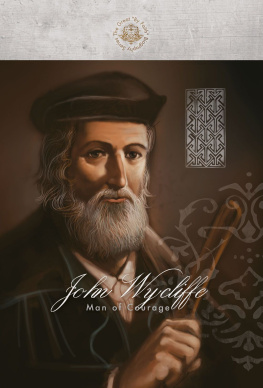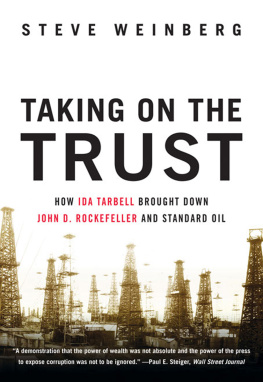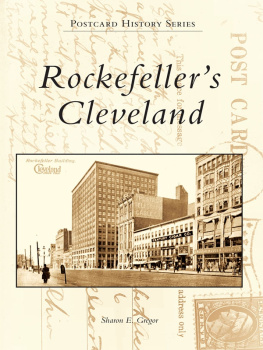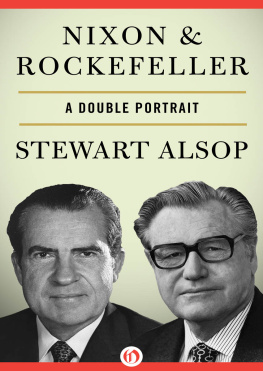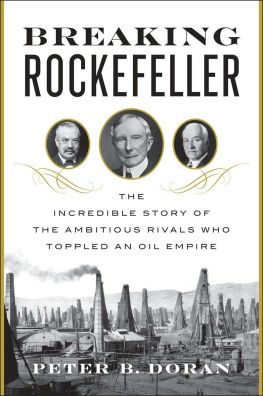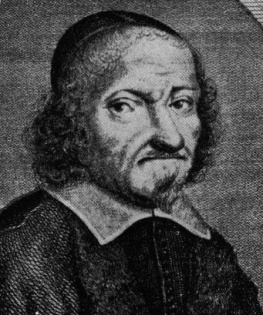Thy Will Be Done
The Conquest of the Amazon: Nelson Rockefeller and Evangelism in the Age of Oil
Gerard Colby with Charlotte Dennett

THE BAPTIST BURDEN
On the first day of July 1924, as the sun neared the end of its long span over the New Mexico desert, the Indians of Taos Pueblo awaited an important visitor. Most, like their war chief, Antonio Romero, hoped the man would become their ally.
The Pueblos were in desperate need of allies. Some of their best irrigated lands, occupied by Anglos and Mexican Americans, were on the verge of being lost forever without compensation. Their traditional religion was under attack by Christian Fundamentalist missionaries and the Bureau of Indian Affairs. Federal marshals could appear at any moment to end their defiance of the BIAs ban on their pagan ceremonies. Their children were undernourished and sick, some dying of tuberculosis, others blinded by trachoma. Now, the Pueblo way of life was threatened with extinction. The Pueblos needed friends in the powerful white world. And this man was very powerful.
As dusk neared, Indians on the roofs of their adobe homes noticed three twisting billows approaching from the distance. When they could see that these billows were unusually large automobiles, the pueblo exploded with excitement. By the time the expensive touring cars pulled up in a whirl of dust, a crowd had gathered.
Out stepped a small middle-aged man. He smiled shyly at the Indians. If they had not been apprised earlier of who he was, they would never have guessed that here was the richest man in the world.
John D. Rockefeller, Jr., gestured, and three adolescent boys joined him from the other cars. The eldest, tall and lean, seemed as shy as his father. Eighteen-year-old John carried his grandfathers name into the third generation and already seemed bent under the burden. The smallest boy, fourteen-year-old Laurance, held a promising glint of mischief in his eyes, but had a habit of looking toward an older boy standing next to him for what to do next. This middle brother, a husky sixteen-year-old, beaming with animal confidence, was clearly the leader. His eyes quickly took in the crowd, one eye strangely bluer than the other. But what really set him apart was the square-jawed grin that flashed a fearless geniality. His father introduced him as Nelson. Nelson Aldrich Rockefeller, named after the maternal grandfather who had been the most powerful man in the United States Senate, already commanded attention.
Nelsons need for attention was precisely what made his father uncomfortable. It had been a source of strain for the father ever since the boys early childhood, when Nelsons rebelliousness surfaced. This trip, far from their Manhattan home and the special relationship Nelson enjoyed with his mother, had been the fathers attempt to gain a closer relationship with his elder boys, particularly this most troublesome second son. Yet the very fact that the Rockefeller males had arrived in different carsthe father riding with officials of a mining company, the boys following in towunderscored how hard it was for the father to break with the corporate responsibility of being John D. Rockefellers only son, even during a vacation. Try as he might, Rockefeller, Junior, seemed incapable of moving out of the shadow of his father, the founder of the family fortune. Even in the family office, he was referred to as Mr. Junior; as Junior himself once explained, there could be only one John D. Rockefeller. If Junior was hurt that Nelson looked up to his grandfather, not to him, as the familys role model, he had only himself to blame.
This western trip did not bring the father and son closer. On the contrary, it only strengthened the boys identification with Rockefeller, Senior. All that Nelson had seen so farand would seethat was symbolic of Rockefeller power, including the mining company that had furnished the cars and drivers for this visit to the Indians, was really a testament to his grandfather. Even the Indians who had gathered to meet them were attracted not to the little man who was his father, but to the magic of Grandfathers name.
The day had been long, and Nelson, as usual, was hungry. Beneath large cottonwoods deep rooted in the Indian soil, the Rockefellers dined, watching the sky over the pueblo fade from crimson to deep violet.
Then, as stars sprayed over the Pueblo canyon, the fun began for the boys. Around a crackling campfire in the woods, Indians performed ceremonial dances in their traditional garb. Nelson was entranced. The bright colors of their costumes dazzled in the firelight as the Indians moved with the ancient rhythms, the music echoing off the canyon walls like spirit voices. When the dancing ceased, Romero stepped forward and presented his own warbonnet to Nelsons father, a rare honor. The man received the headdress with proper grace. He was impressed.
No government official has ever been presented with a present that is valued as highly by the Indians, Junior was later told by a proud executive of The Rockefeller-owned CF&I, which ran mining operations in the Colorado mountains to the north, was a power in the region. Unknown to Nelson or his brothers, the company had secretly contracted through the BIA for the dances, paying the Indians thirty dollars.
It was a pittance for what a BIA official called the most elaborate entertainment that Taos Pueblo had ever put on for visitors. Warned by a CF&I official against jeopardizing future courtesies the Indians might extend to the Rockefellers, Junior showed his appreciation. The next day he returned with the boys. In true GI fashion he distributed seventy pounds of candy to squealing crowds of children.
If the Indian childrens parents had hoped for something more substantial, they would be disappointed. Junior would not assist them in their struggle against the Baptist missionaries and the BIA. In fact, he was secretly funding the missionaries.
T HE R ELIGIOUS R OCKEFELLERS
Nelsons father had been raised within the moral confines of the northern Baptist church. Everything in life was severely measured, everything reduced to its place within the safe clockwork universe of a Newtonian God. Pocantico, Grandfathers 3,600-acre estate overlooking the Hudson River, symbolized this passion for order. Surrounded by tall fences and guarded gates, Pocantico was a world apart, isolated from the chaos of nature. Formal gardens, acres of flower beds and carefully manicured lawns, and shrubs and transplanted trees positioned at strategic points along paved roads all spoke of the steely will of the Calvinist ex-bookkeeper who had founded Standard Oil. On top of the tallest hill stood the huge stone chateau Junior had built for his father in atonement for the wooden mansion that had accidentally burned down during one of his summer stays there. Beneath Grandfathers mansion, cradled in the valley below, Junior built his own home, its modest size appropriate to his station in the familys patriarchy.
Here, under the long shadow of their grandparents frill-less religion, Nelson and his brothers and sister were raised. Each morning, precisely at 7:45 A . M ., Junior would lead them in prayer and Bible readings around the breakfast table; each evening before dinner, they would pray again. Between Juniors exhortations on the importance of keeping accurate accounts of their allowances and the occasional reward for killing flies at a penny apiece, the children were drilled in Bible verses written on cardboard file cards. Sunday evenings, after the obligatory state dinner with Grandfather on the hill, were often given over to singing hymns. Nelson, the most effusive of the children, suffered terribly. We sang hymns tonight, he once wrote his mother, Abby Rockefeller, after one such night when she could not attend, but luckily Pa had to go to church so we stopped at a quarter of eight.

